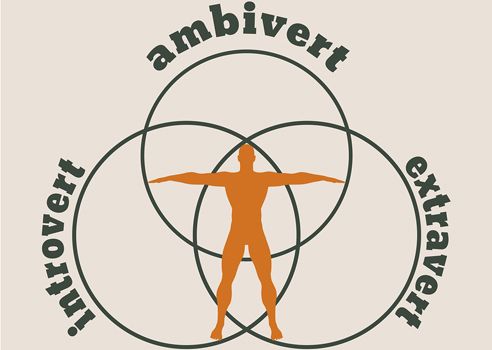Reading time: Just over 1 minute
Increase your vocabulary and you’ll make your writing much more precise. That’s why I provide a word of the week. Today’s word: ambivert.
I recently hosted a birthday dinner for my brother-in-law, Doug. Over the meal we started talking about extroversion and introversion. Doug is an engineer but a socially skilled one, so he can tell good jokes. My favourite?
What’s the difference between an introverted engineer and an extroverted one? The introverted one looks at his shoes while he’s talking to you. The extroverted one looks at your shoes. Ba da boom.
People sometimes regard me as an extrovert, which I’m not. Instead, I’m an outgoing introvert. I can socialize when I have to, but I’m more comfortable at home reading a book. And, after going through a stressful situation, I’d much rather be alone, to recover. That, in fact, is how you tell whether you’re an introvert or an extrovert: Do you best recover from stress with others — or alone? (Either answer that question or do a no-cost Myers-Briggs test here.)
But as we were talking at this birthday party, Doug claimed there was another word in the introvert-extrovert continuum. He couldn’t remember it but he emailed it to me the next day: ambivert. I’d never before heard the word but it means someone who is moderately comfortable with groups and social interaction, but who also enjoys time alone. That may, in fact, be the word that best describes both my brother-in-law and me.
My dictionary of etymology tells me the word was coined in 1927 by Kimball Young in his Source Book for Social Psychology. The root, ambi is Latin, meaning “about, around” and the vert comes from the Latin verb vertere, meaning to turn.

